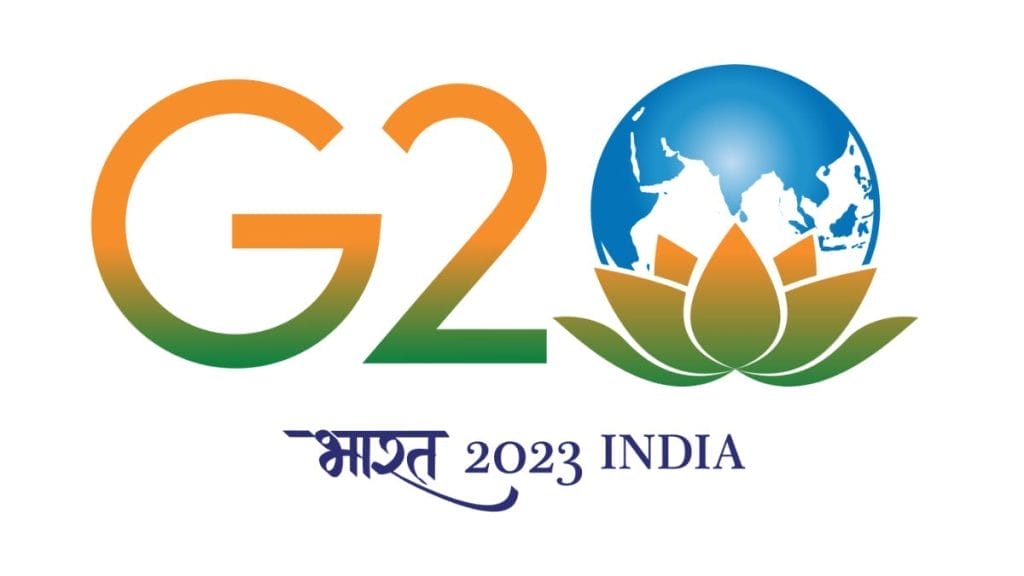Column by Viral Desai, Environmentalist & Ecopreneur
For the G20 Summit, the motto of Vasudhaiva Kutumbakam has been adopted, through which the whole world will know for the first time how Sanatana Sankriti saw the world as one family eons ago. This mantra of Mahaupanishad is basically something like this,
अयं निज: परो वेति गणना लघुचेतसाम।
उदारचरितानां तु वसुधैव कुटुम्बकम॥
Which means that narrow-minded people think that this is mine and that is someone else’s. But people of high character consider the whole Vasudha as family. One thing I want to emphasize here is that in this verse of ‘Mahaupanishad’ the word ‘Vasudha’ has been used. The word Vishva meaning world is not used in that verse! Which I liked a lot. Because the word ‘Vishva’ (world) is extremely limited as far as I understand Sanatana Dharma. By the word world, we can include only continents, countries, geographical areas or human civilizations. But when we use the word ‘Vasudha’, the whole earth comes, which is the earth including the trees, the oceans, the minerals, the weather, the bio-system and we all have an interdependent eco system!
That is why the sages of ‘Mahaupanishad’ used the word Vasudha instead of using the word world in the verse. It also means that centuries ago the idea of protection of ‘Global Environment’ was given in written format on the Indian soil. However, it has to be admitted here that the literature created in any culture depends on the tradition of that culture. Even before this verse was composed, protection of the global environment in India had become not just an idea but a lifestyle.
Perhaps that is why there is lots of evidence of people caring for ‘Vasudha’ in India’s Puranas, in India’s history, and even in today’s rural India. I am willing to bet that no culture in the world has the word ‘bhoomipujan’ available. But the beginning of India’s Vastu Shastra begins with Bhumi Pujan. Where Bhoomi i.e. Mother Earth is worshiped before any construction. At the same time, it is also asked for forgiveness that if we hit your chest for our small selfishness or for our small convenience, then forgive us, mother earth. In that apology, it is also prayed that by building our house, few trees will be cut, or if the earth is dug, both of them will destroy the homes of many creatures. So kindly forgive us for this mistake.
Such gratitude towards the earth and such forgiveness cannot be found anywhere else except in the Sanatana culture. So even in the matter of food, there is no other ancient system like the Sanatana culture. Suppose a farmer grows grains in a field. He always has a legitimate share of many other organisms in that grain. There is a whole chain for that. But before I talk about that chain here I am reminded of Guru Nanakji of Sikhism. Guru Nanak used to say,
Raamji Ki Chidiya, Raamji Ka khet,
Khaale Chidiya, Bhar Bhar Pet.
This means that India’s saintly tradition allows various members of the ecosystem to eat grains directly from the field. Simultaneously giving a message to an entire religion that it is our responsibility to provide food to our birds or creatures! From this I remembered another thing that once upon a time in Sanatan tradition ‘Gau Daan’ i.e. donation of cows was very important. Again, this is the proof of respect, restoration and importance of animals – ecosystems.
However, we were talking about an entire food chain from agriculture. That practice is still being followed very faithfully in rural India. Like when food is harvested in any field, the fodder that remains after sowing the seeds should be given to cows, buffaloes, or any other mammals. After the harvested crop is taken home and the cleaning of the same is done, if some of the seeds are small or not of the right size, they are fed to the birds. Then flour is made from those grains. Out of which, some flour is taken out for ants. If that flour is soaked in water, then a small part of it is taken out for fishes.
Then roti is made from that flour. Then, few rotis will kept aside to feed the dogs and the cows. The belief system of many Indians is so strong that if cows and dogs are not fed in this way, Indians would consider their meals incomplete! In short, the tradition of considering all the creatures living on ‘Vasudha’ or associated with the earth as a family is found only in India. At a time when the whole world is coming to India’s doorstep on the occasion of G20, we have to show them that even though the whole world is talking big about global environment and protection today, these talks are after the world started carbon emissions. Rather, India has given a life style since the Vedic period, that life style is ‘Vasudhaiva Kutumbakam’, and that life style the whole world will have to accept now.





